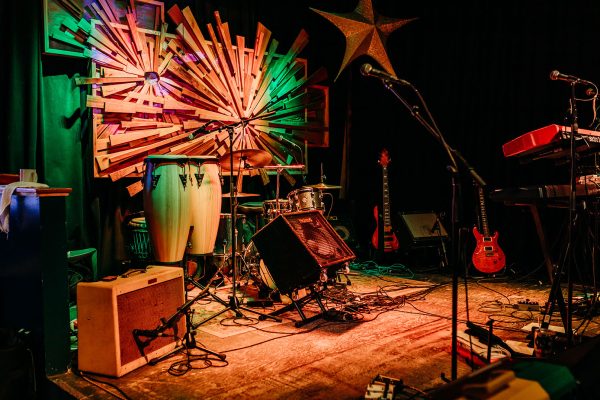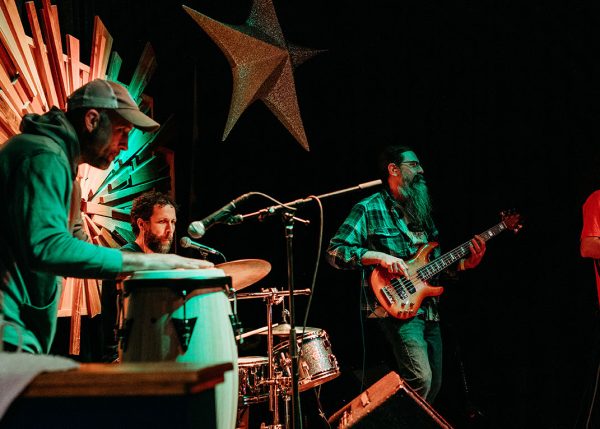In the 1960s, as race tensions were high across the globe, one island in the Caribbean found a way to spread a message of peace and hope among the oppressed, shouting their fight songs for the world to hear.
Born from the mento and ska music popular in the area in the 40s and 50s, a new sound emerged on the island of Jamaica: Reggae.
Reggae, in its early days, could be heard from every street corner in Jamaica as the style gained traction and popularity across the island.
Since the very beginning of reggae music, the message has always been about peace, love, justice and resistance to the oppression Black people face every day.
Amongst the various inspirations for reggae music is a religious movement that emerged in the 1930s across several African and Caribbean countries. The music draws inspiration from the Rastafaria religion, a sect of Christianity. Drawing from the Old Testament of the Bible, Rastas believed Jah, or God, was testing African people through slavery and economic injustice, and that Ethiopian emperor Haile Selassie I was the new coming of Christ.
Many Jamaican Rastas are the descendants of African slaves who were taught Christianity while enslaved on the island. Although it is difficult to determine the number of Rastas that are practicing around the globe, their messages of love and hope are what live on through reggae, spreading far and wide, even into the little mountain town of Boone.

Susan Mills is a professor of music education at App State and played in a reggae band for 12 years. She said reggae music pulls partially from gospel and religious tunes.
“You can imagine, as with many oppressed people, they turned to religion as an escape from poverty and poor social conditions,” Mills said. “The lyrics of these songs were typically laments about the social conditions in Jamaica and the negative consequences for people involved. The music represents that organized spirituality.”
Alongside the religious aspects of reggae was the unification of the people of Jamaica against violence and injustice.
Jonathan Priest works in IT for App State and has a personal history with reggae music. He began listening to the genre as a kid when he had a neighbor from Jamaica who introduced him to the style. He fell in love with the music and later ran a reggae radio program in Florida.
“It was a really interesting time in Jamaica that gave rise to reggae. There were two political parties that would arm gangs of young people to fight against each other,” Priest said. “It basically divided the nation, but the music that came out of it was like, ‘stop the violence, let’s come together, let’s know ourselves and our cultural roots.’”
It is that very idea of peace and unification that sparked the revolution of reggae music. With popular names like Bob Marley and Peter Tosh spearheading the movement, reggae exploded into the pop culture scene, finding a place for itself not only in Jamaica, but across the globe.
“The liberation of people from oppressive regimes through reggae spread around the world to other countries who were fighting for independence, and they gained a lot of empowerment from the music and the sounds,” Priest said. “It spread around the world far beyond Jamaica to produce such strong messages.”
Many of the songs are full of cries of pain and calls to action. Songs like “War” by Bob Marley and the Wailers, which shouts “That until the basic human rights / Are equally guaranteed to all / Without regard to race / Dis a war,” over a peaceful drum beat, became beacons of hope and outlet of expression for the oppressed.
It is also those very messages that keep reggae alive six decades later.
“It isn’t as though all justice has been restored in Jamaica, or in Africa, or in African-America or in the Caribbean,” Mills said. “Reggae has relevance today in injustice. It’s relevant to what we see happening in the Middle East. It is relevant in terms of people having to silence themselves in fear of their own life or their loved ones. There is lots of relevance for people who feel like they need a voice for oppression.”

(Leah Matney )
The powerful lyrics of reggae music are complemented by the irresistible beat backing the words. From the unmistakable one-drop beat of the drums, to the beachy calypso inspired instrumentation to the blaring horns often present in reggae songs, the music captivates the mind and body.
“When people dance to reggae music, sometimes they say it’s so easy to dance to it’s like you’re walking down the beach. It’s very natural, and I think that’s why people feel spiritually connected. It’s just easy,” Mills said.
Priest echoed these thoughts, saying the unique style of the music is what gets people moving.
“Reggae wouldn’t be reggae without the strong bass and drum line. Those components give you a full body desire to move,” he said.
Peter Brown, a local Boone musician and App State alumni, plays guitar, keyboard and sings for the reggae band Rastacoustic. An avid lover of all things reggae, Brown says he thinks the reason reggae is still relevant years later is the spirituality inherent in the music.
“You know, getting into reggae wasn’t a consciously planned thing for me. I think that kinda speaks to the spiritual and cosmic nature of the music and lyrical content,” Brown said. “Bob Marley said that reggae will find the people who need it, and it sure found me.”

(Leah Matney)
In celebration of Bob Marley’s birthday on Feb. 6, Rastacoustic played at Boone Saloon Feb. 10 for the second annual Bob Marley Birthday Bash. Brown said the band was looking forward to this event as a way to spread the magic of reggae.
“Reggae music is obviously very Afro-centric and a revolutionary style of music,” Brown said. “I find it very cosmic that this guy from a tiny island spread his message around the world. It’s fun to celebrate his music, but the very nature of that lends itself to Black history, which is so important.”
Brown said the show means more than just playing music with his friends.
“My hope is that through these types of events, we could bring more people in to explore more reggae music,” he said.
As the world continues to fight oppression, economic disparity and racism, the lyrics and messages embedded in reggae music continue to offer words of hope, love and justice, and the poignancy of the words are ever present, even 60 years later. Acknowledging the work of reggae musicians in the efforts of fighting oppression is at the heart of keeping the spirit of reggae alive.
“Humans have this innate yearning for a togetherness and a society that’s built on love and respect,” Priest said. “When you’re in a world that doesn’t really reflect that, the lyrics and the spirituality of reggae speak of a redemption and a relief from that world.”
For those in Boone looking to dig deeper into reggae, check out this playlist full of some classic reggae songs mixed in with some less popular songs.


